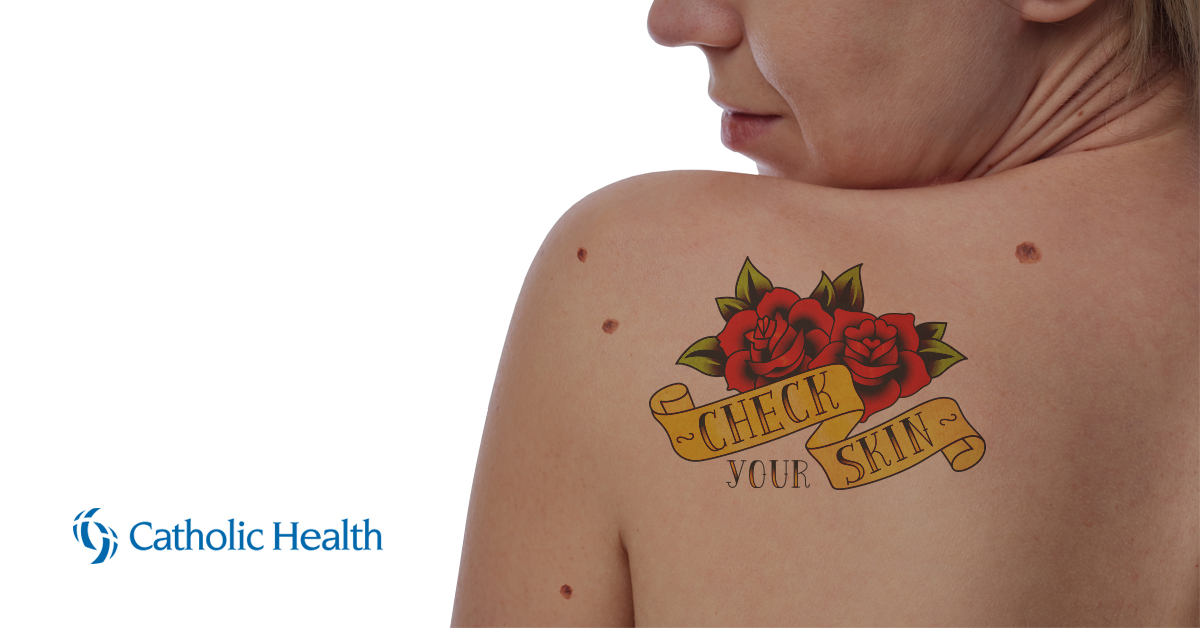Regular skin checks are important
Warmer temperatures mean ditching bulky sweaters and spending longer days basking in warm sun rays. Moderate exposure to the sun can offer us health benefits, like boosted production levels of vitamin D and serotonin, the mood-enhancing hormone. However, too much exposure to UV rays (from natural or artificial sources) can increase our risk for developing melanoma.
Melanoma is a unique cancer, because it’s often noticed just by checking your skin. If caught in its early stages, it can be successfully treated. That’s why it’s such a great idea to get your skin and moles examined once a year by a trained medical provider.
Melanomas can still develop between visits, so it’s important to recognize warning signs and know your ABCDE’s.
The ABCDE’s
- Asymmetry: The two sides of your mole aren’t mirror images of each other.
- Border: The edges are irregular, blurred, or jagged.
- Color: The color isn’t the same throughout your mole. Color variations can include different shades of brown or black, and in some cases, pink, red, white, or blue.
- Diameter: Your mole is larger than the diameter of a pencil eraser.
- Evolving: The mole changes in size, shape, or color.
Additional warning signs
- Sores that don’t heal, including redness that extends beyond the border of the mole.
- Moles that become itchy or tender.
- A mole that is scaly, oozes, or bleeds.
- A spread in pigment from the border of a mole into the surrounding skin area.
It’s likely you’ll spend a lot of summer afternoons outdoors going for walks, enjoying family and friends, or doing work around your home.
To help protect your skin, make sure you use a high SPF, broad spectrum sunscreen and apply it every thirty minutes. Also, consider wearing clothing to cover your skin. It’s important to protect your eyes and face from harmful sun damage. Sporting a hat and sunglasses is a great way to do both.
As always, there are exceptions to the rules, so be sure to keep your doctor informed if there are any changes to your skin or if new moles develop. Remember, when in doubt, get checked out!
Find an Oncologist Near You
Call (716) 706-2112
Find an Oncologist Near You
Call (716) 706-2112





